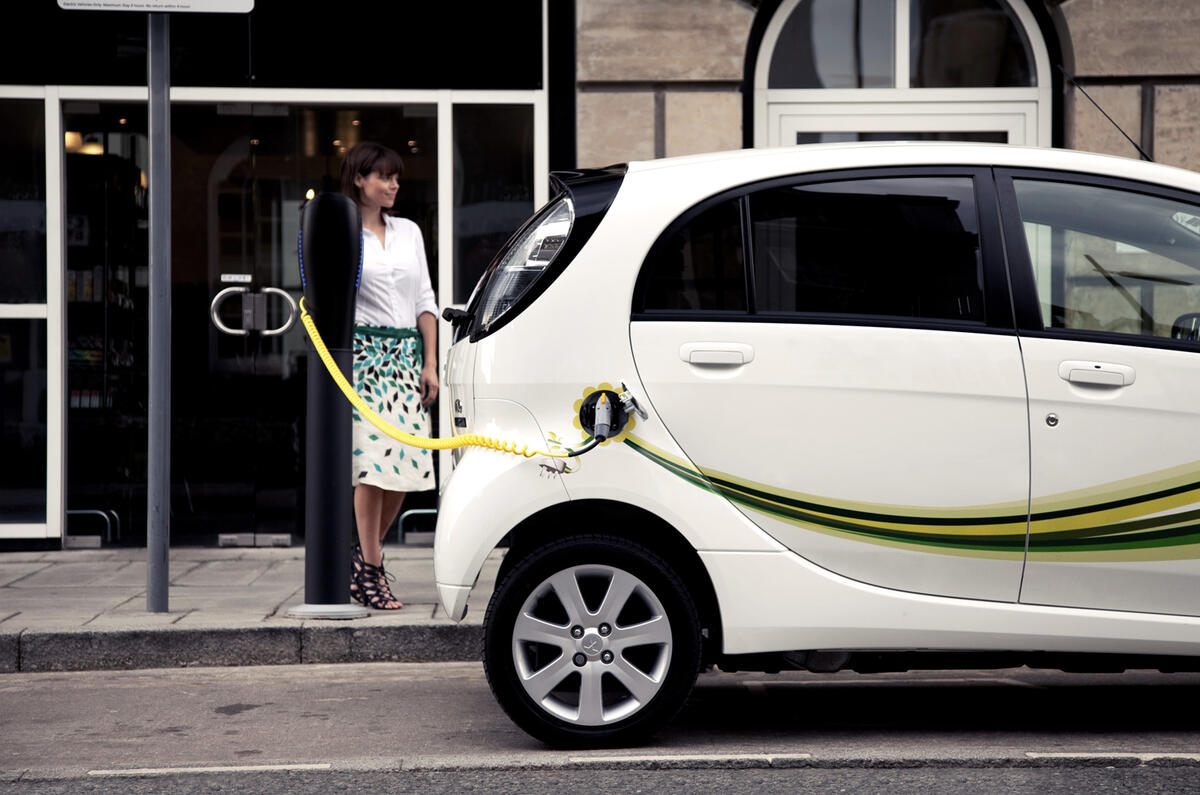The majority of electric vehicle charging points in the UK will move to become paid-for within the next year, making it harder to charge electric vehicles for free.
Chargemaster, which in April will become the first major electric vehicle charging point provider to start making motorists pay to use its sites, says the move has been prompted by the end of the Government-supported Plugged in Places scheme later this month.
The Plugged in Places intiative matched private funding to support the building and use of EV charging points. Its end means many more EV charging point providers will move to a paid-for plan over the coming year.
Chargemaster boss David Martell said the plan needn't dissuade motorists from using electric vehicles. "It's simple," he said. "This is happening not just in the UK but all over the world. In the Netherlands until last year charging points were free and now it's chargeable. You can't get away from it. If you want public charging points someone has to pay not only for the electricity but also for the maintenance and investment.
"This is a positive step because it means there'll be more and better-maintained charging sites."
Chargemaster stressed that the majority of its 3000-strong charging point network will remain free when the switch begins. Around 20 per cent of the network will become paid-for initially, with more sites joining in the coming months.
Charges for the firm's Polar network of EV charge points allow motorists to either pay a monthly direct debit or annual subscription or use a smartphone app. Using the app, prices for using a charging point equate to £1.20 per hour on a standard 13amp tariff, £1.70 per hour on an advanced Type 2 tariff, and £7.50 per half hour for a rapid charge.
However, the move has angered some electric vehicle organisations. Board member of the Electric Vehicle Driver's Association Brian Orr said: "These charges are absurdly high and seem to be contrary to everything up until now. The charging can be much more expensive than running a petrol car. It's a total setback."
Statistics seen by Autocar show that for every £1 spent on charging, 42p covers the cost of electricity while around 41p is needed to cover maintenance, provisions for new sites, spare parts and call centres.
In London, the current network of around 1400 charging points will be expanded to 6000 by 2018 as the French Bollore Group takes over the network's management from the middle of this year. The Group recently launched its car-sharing scheme in the capital, an electric car rival to the 'Boris Bike'.
The Office for Low Carbon Vehicles has been contacted for comment.




Join the debate
Add your comment
I like the idea .......
Why is anyone surprised by this?
Electric motoring is costly as it is
Prohibitive upfront cost, brief range, charging time, novelty and future battery replacement costs - all stack against EV.
That pretty much leaves die-hard environmentalists or those who have enough cash to splash on the trendy Model S or the i3.